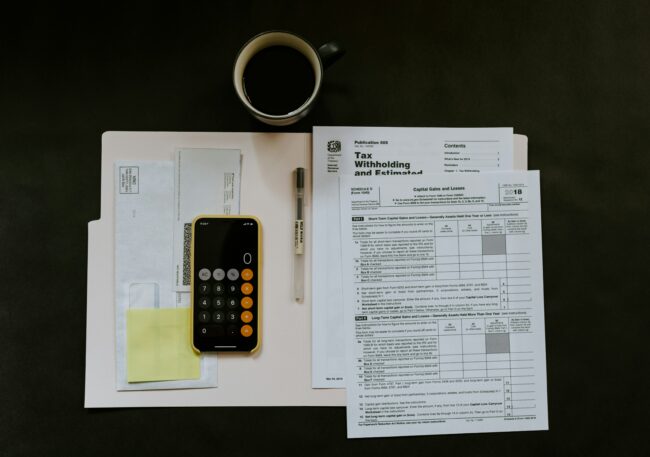
Owning rental property can be a lucrative investment, but it also comes with a range of expenses. Fortunately, the U.S. tax code offers several deductions that can help rental property owners reduce their taxable income. Understanding these tax deductions can significantly improve your return on investment and ensure you’re not overpaying on taxes. Here’s a breakdown of key tax deductions available for rental property owners.
1. Mortgage Interest
One of the most substantial tax deductions available to rental property owners is the mortgage interest deduction. If you have a mortgage on your rental property, you can deduct the interest paid on the loan each year. This is especially beneficial in the early years of your mortgage, as the bulk of your payments will typically go toward interest rather than principal. The interest deduction applies to loans used to acquire or improve the property.
2. Property Taxes
Just like your primary residence, property taxes on your rental property are deductible. This includes state, local, and municipal property taxes. Property taxes can add up, so this deduction can lead to significant savings for rental property owners. The IRS allows you to deduct the taxes as part of your rental expenses, reducing the overall taxable income from the rental property.
3. Repairs and Maintenance
Ongoing repairs and maintenance expenses are fully deductible in the year they are incurred. These can include costs related to fixing a leaking roof, replacing a broken furnace, or fixing plumbing issues. It’s important to note that repairs are different from improvements. Repairs maintain the property’s condition, while improvements increase its value. While repairs can be deducted immediately, improvements must be depreciated over time.
To qualify as a deductible repair, the expense must be necessary and reasonable. For instance, replacing a worn-out carpet in a rental unit due to normal wear and tear would be deductible, but installing high-end flooring would likely be considered an improvement and require depreciation.
4. Depreciation
Depreciation is another powerful tax deduction available to rental property owners. The IRS allows property owners to depreciate the value of their rental property (excluding the land) over 27.5 years. This means you can deduct a portion of the property’s value each year for nearly three decades.
Depreciation can be especially helpful if the property has appreciated in value over time. By deducting the depreciation, you can reduce your taxable rental income, even if the property’s market value is increasing. Depreciation is often considered the single largest tax break for rental property owners, and it can offset a significant portion of rental income.
5. Insurance
Rental property owners are required to have insurance, and the cost of this insurance is tax-deductible. This includes property insurance, liability insurance, and even rent loss insurance, which covers lost rental income in case the property becomes uninhabitable due to damage. Keep detailed records of your insurance premiums, as these costs are fully deductible as long as they are related to the rental property.
6. Utilities
If you pay for utilities like water, electricity, gas, or trash collection for your rental property, these expenses are deductible. Utility costs can vary depending on the lease agreement with your tenants—some tenants may pay their own utilities, while others may have the utilities included in their rent. If you pay the utility bills directly, you can deduct them as part of your rental property expenses.
7. Management and Professional Fees
Rental property owners often incur management fees if they hire a property management company to handle the day-to-day operations of the rental. These fees are fully deductible. Similarly, any professional fees you pay for legal, accounting, or consulting services related to the rental property can also be deducted. If you hire an attorney to draft a lease agreement or a tax professional to help with your rental property taxes, these costs are tax-deductible as well.
8. Travel Expenses
Travel expenses related to the management and upkeep of rental property are deductible. This includes trips taken to inspect the property, meet with contractors, or address tenant concerns. You can deduct mileage if you use your personal vehicle for these purposes, or if you use public transportation or an airline, those costs can be deducted as well. Keep meticulous records of these expenses, as the IRS may request documentation to verify the travel’s business purpose.
9. Advertising and Marketing
If you spend money on advertising your rental property, such as placing ads in local newspapers, online listings, or even signage, these expenses are tax-deductible. Additionally, costs related to creating and maintaining a website for your rental property are deductible. These marketing expenses are considered ordinary and necessary for generating rental income.
10. Home Office Deduction
In some cases, rental property owners can claim the home office deduction if they use part of their home exclusively for managing their rental properties. This can apply if you do administrative work related to your rental business, such as paying bills, keeping records, or communicating with tenants. To qualify for this deduction, the space must be used regularly and exclusively for managing the property.
Conclusion
Understanding the available tax deductions can help rental property owners maximize their tax savings and improve their investment returns. From mortgage interest to travel expenses and insurance, these deductions can add up, significantly reducing taxable rental income. It’s always a good idea to work with a tax professional who specializes in rental property taxation to ensure you’re taking full advantage of the deductions available and staying compliant with the IRS. With the right strategy, you can lower your tax liability while maintaining a profitable rental business.








